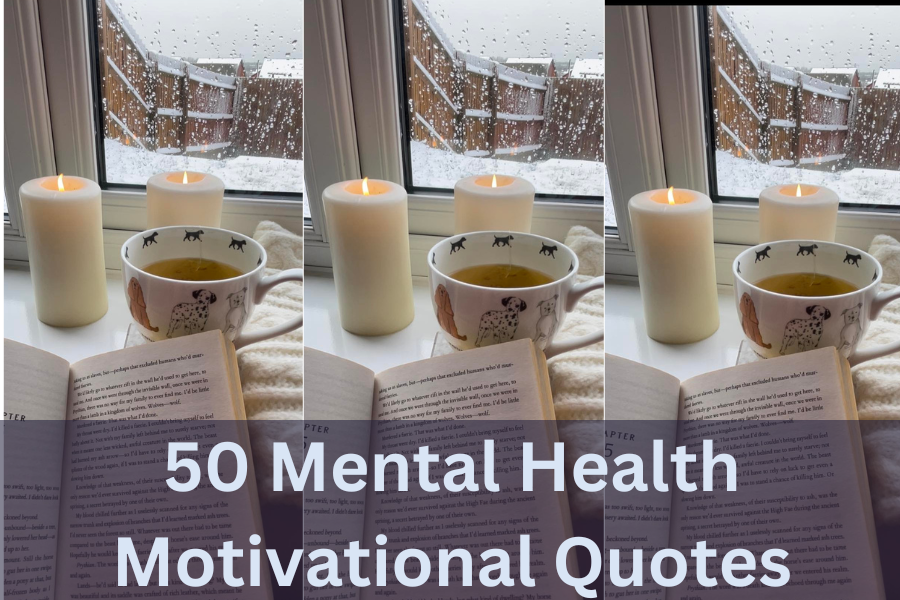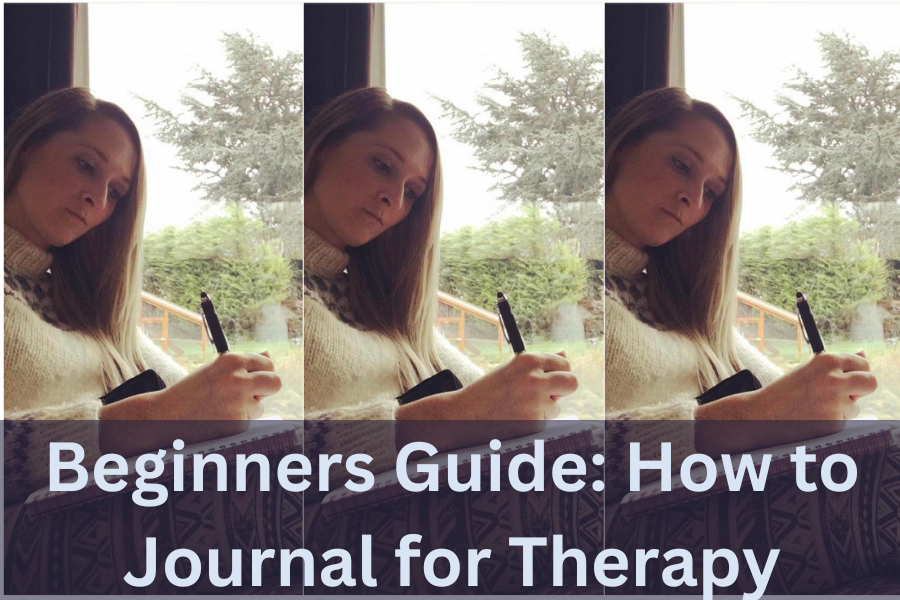Ever wondered if journaling for therapy is for you? Our beginners guide on how to journal for therapy will teach you the benefits, cautions and some ideas to help you decide.

Whether you want to improve upon your mental health or find ways to increase self-growth there are a lot of benefits to journaling for therapy. The prospect of how to journal for therapy may seem daunting, so today we’ll take a look at the basics.
In this post you are going to learn how to journal for therapy, what cautions to take, the benefits and prompts to help you start.
After reading the Beginner’s Guide: How to Journal for Therapy, we hope you’ll be able to make the decision on whether this is right for you, and where to start.
This post is our Beginner’s Guide on How to Journal for Therapy.
(Note/Disclaimer: This is just research completed by me and what I used to help myself. I do not have any medical qualifications and recommend you talk with your doctor)
Beginner’s Guide: How to Journal for Therapy.
If you wrote a diary or journal growing up it usually involved jotting down the day’s events. Not many emotions made it into the daily summary, it was mainly a summary of where you had been and what you’d been doing. Not what you’d been feeling.
If you’re anything like me when you reached your teenage years the diary only really had an entry when life got really bad. Then there were more emotions than actions.
At the time my journal served as a thread keeping me from completely losing my mind.
And that’s what Therapeutic Journaling can do. It can help us to filter through the emotions and thoughts swimming around in our heads. Journaling for therapy can help up to understand what we are struggling with, help us to reflect, create a deeper understanding of who we are and help us to grow into something more.
Journaling for therapy can’t replace therapy. But it can help you to have a better perspective on your mental health and also aid you in therapy.
The benefits.

Journaling for therapy can help you in a variety of ways at a number of different times in your life.
When things are busy, your thoughts become busy and emotions begin to intertwine. We don’t always have time to regard our emotions in the way they deserve, and so they can build and mix in with one another.
At times like these life can feel overwhelming, this is where therapeutic journaling comes in. It can help us to sort through experiences, make send of emotions and organise them in a way we can attend to.
Research suggests moving emotions from the brain to paper can help us to calm the amygdala down and cooling our emotional response.
Using a journal in this way can also act as a form of meditation. As we have to slow our thoughts down, acknowledge emotions and be more present in the moment.
Journaling as therapy can help us to identify patterns in our thoughts, behaviours or emotions. We can begin to understand ourselves in a way that helps us to grow. Through this, we can begin to change our actions and behaviours in a way that helps to serve us and bring us closer to our goals.
Therapeutic journaling can help us to track our progress, and identify new ways to handle obstacles that arise. Many of us are so busy moving on to the next thing, we can forget how much we have progressed.
And a benefit that you may not expect, it can help to boost our immune system. Great for our minds and bodies.
Cautions.

Although beneficial to most, therapeutic journaling can cause some distress depending on the emotions you have to sort through.
For those who have experienced trauma, it is recommended to journal in this way in with the help of a mental health professional.
Those who are experiencing symptoms of anxiety or strong emotions (like those who are experiencing divorce) should limit their time journaling on these emotions to 5 minutes. Spending too much time recording and reflecting on these feelings can create a snowball effect to provoke these feelings more.
It is best to monitor not only your emotions and responses to daily life but also monitor how the therapeutic journaling is making you feel and change your strategies to aid with your therapy goals.
How to?

An easy way to begin is by keeping a regular journal. When noting events in the day start to take note not only of what happened, but what you thought and how it made you feel in the moment and after.
This can help you to recognise any issues or concerns you may have before it grows into something more.
Therapeutic journaling can also involve prompts. Two doctors who have created such prompts are Dr. Progoff and Dr. Pennebaker.
Dr. Progroff uses prompts which revolve around the person’s health, personal life, body, life history, and dreams. These prompts can help you to develop a better understanding of yourself which can help you to work through issues.
Dr. Pennebaker notes how expressing emotions can help you to heal. The protocol usually rolls over 5 sessions in which you write about an emotional event. Writing in this way can not only help us build meaning and a personal narrative, but it also gives us short-term and long-term benefits for our overall health.
A few prompts to start.
Take a moment to reflect upon an event that brought up a difficult emotion, maybe shame, guilt, anxiety or sadness. Use a session (around 15 minutes) to reflect upon it. But always remember if the emotions become too negative to you, cut the session short, and consider using this with a therapist.
Write a letter to someone about what you are experiencing. This doesn’t have to be a person you can send the letter to, it can be your younger self, older self or a past relative. Let this person know what you are going through.
These letters can also touch upon other subjects, like forgiveness, or to someone who has had a positive impact on your life.
Take some time to write out a list of 100. These could be 100 things which make you happy, 100 things you want to do, 100 reasons to wake up in the morning, 100 things which make you sad. In this session you’ll find that a few things can be reoccurring. These are topics which you can reflect upon further.
Use open-ended questions. These can help you to reflect on patterns and emotions you might overlook. The questions could be “My happiest day was…” “I feel safe when….” “I am most worried about…” “I can’t sleep when…” “When I am in a negative mood, I’d like to remember…”
Writing dialogue can also help to prompt us in our therapeutic journaling. In these sessions think of two people who can be involved. Examples of this would be a conversation between you and your future self, or your childhood self.
Not everyone enjoys using prompts when journaling for therapy. So try both free-form and prompt sessions, and take note of which ones you feel are more engaging and beneficial to you.
To summarise.
- Start by noting on your day and the emotions you felt.
- Try a free-form session, and write where the wind takes you.
- Think about completing a prompt session.
- Take note of how you respond to each session and choose the best one for you.
- If the emotions become too negative, time your sessions or cut them short.
- If you begin to ruminate on thoughts or emotions, it’s time to consider working with a therapist to help you through.
This post was our Beginners Guide on How to Journal for Therapy.
Other posts you may like…
Secrets to Managing Workplace Anxiety.




